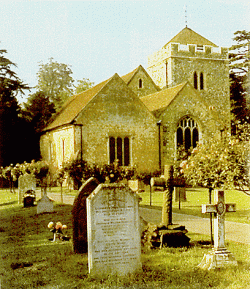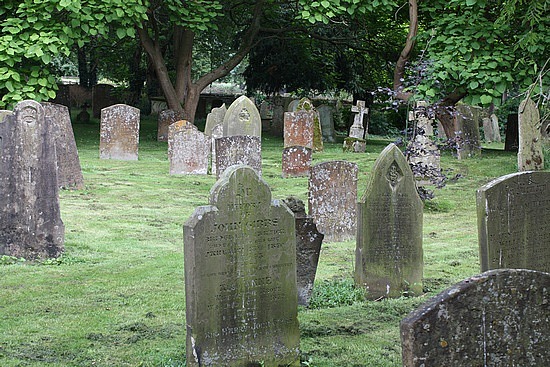Gerontion, by T S Eliot, was first published in the year 1920. True to its name, which means ‘of or relating to old age,’ this poem describes through an old man his impressions and opinions and laments after World War I. The poem is considered the preface of a long and one of the most important poems of the 20th century, The Waste Land, written by the same poet. However, T S Eliot himself decided it as an independent one.
Gerontion: About the Poet
Thomas Stearns Eliot (T S Eliot) was born in 1888 in Boston, United States. However, he had his roots in Old and New England. T S Eliot first began to write poetry when he was 14. He first published his poem in 1905 while still in school. 10 years later, he would receive wide attention for his masterpiece ‘The Love Song of J. Alfred Prufrock.’ T S Eliot went on to become an essayist, playwright, and literary and social critic. His most notable works include ‘Four Quartets,’ ‘The Waste Land,’ and ‘Murder in the Cathedral. He received many awards for his works, including the ‘Nobel Prize in Literature and ‘Order of Merit.’ A huge contributor to modernism, Eliot died at the age of 76 in 1965 of emphysema.
Gerontion: Setting
The setting of the poem is an old, decaying house in a valley with fields overhead. It is there that the old man who is the speaker of this poem resides with other tenants of the house.
Gerontion: Poetic Devices
Foreshadowing:
The poem begins with three lines which tell us briefly what the poem contains. We get the idea that the poem contains an old person and his thoughts.
Alliteration:
There are many alliterations throughout the poem. ‘Blistered in Brussels,’ ‘peeled and patched,’ ‘Came Christ,’ ‘contrived corridors’ are some examples.
Repetition:
There are a few repetitions in the poem. For example, ‘Think now’ in paragraph 5 and ‘Think of last’ in paragraph 6 are repeated a number of times throughout the passage.
Personification:
In paragraph 5, a ‘wrath-bearing tree’ is mentioned. ‘Wraths’ are bored by humans and animals. A tree cannot do that. This is a prime example of personification.
Allusion:
There is an allusion to World War I in the first paragraph of the poem when the old man laments not taking part in the war.
Imagery:
Vivid imagery is used throughout the poem. In the first paragraph, we get the things soldiers do when fighting in a war; we know the exact location of the house the old man is in and the surrounding areas of the house; we see spiders, bears, and nervous and fidgeting people. These are all the results of imagery.
Gerontion: Style
The poem has neither rhyme nor rhythm. It does not even contain stanzas. It is in a pure free verse form.
Gerontion: Summary
The speaker of the poem is an old man in an old house whose thoughts drift while being read to by a boy, and these thoughts form the poem. He misses fighting in the war and laments his presence in the mundane and common-place house.
He speaks of the depravity of humanity in the then world. Lured by modernism, they covered the truth with darkness, taking only some of it with them and interpreting it as they wish. He describes the countries’ actions in World War I. He says that all sinners have divine judgment coming for them. And he was going to receive it too, for he was removed from near the heart of Him. He was removed not because of his sins but because of his loss of passion. He discarded passion of his own will rather than seeing it get corrupted. He speaks of the humans running around mechanically, their brains working while their hearts have cooled down. And he has no part in these workings, in these changes of modernism, and so he has been driven into a sleepy corner, untouched by the world.
The speaker, the old man, the Gerontion, gives his opinions and impressions of the modern world and laments the direction which it was taking.
Gerontion: Analysis
The poem starts with a foreshadowing. In those three lines, T S Eliot conveys that this poem will contain person(s) who are neither young nor of age, implying that they cannot work. In short, an old person. ‘Dreaming of both’ implies that this old person dreams of being young and taking action.
True to the foreshadowing, the poem starts with an old man being read to by a boy. He says that it was a ‘dry month’ and that he was ‘waiting for rain.’ As we continue forward, we find that these phrases are not literal. They allude to something much more significant and important. The old man then laments of his age, of how he could not participate in the war. There is no explicit mention of war here, but it is implied by the time the poem was written; 1920 is just a year after World War I ended. So, we can assume that the old man regretted not participating in this war. He goes on to say; instead of being in the warm rain, swaddling through marshes to fight the enemy, he was in a decayed house. The decayed house can literally refer to the house he was currently in, or it can also be a metaphor for his own state, a body that was past its prime. He goes on to describe the mundane household he was in. He describes the owner, a Jew; he describes the landscape and the woman who keeps the house. They are all portrayed as regular and common. This, in contrast with the hotly described battlefield experiences only, enhances the condition the old man is currently in.
We get an idea that the old man was in a house in a valley by the way he speaks of the goat ‘coughing overhead’. The old man says he is a ‘dull head among windy spaces. By this, he means that in this world, where everything was changing too much and too fast, he was remaining the same, dull. But does he regret this? It is answered in the following paragraphs.
The old man then speaks of signs. This exudes religious characteristics. Signs are often used in religions to convey a path, truth, or decision. The old man speaks of signs here and says that while trying to find the deeper meaning of a sign, nothing is gained, and everything is lost. ‘word within a word, unable to speak a word, is an apt sentence for this. He says the signs are swaddled with darkness, but not really. Humans are the ones covering them in darkness and hence seeing and interpreting only a part of it at a time, and hence losing the main meaning. He ends this paragraph by saying in the young year came to Christ the Tiger. Christ is loving, but here, the old man means to say, looking at the actions of the humans, that Christ is now judgemental.
The religious references continue in the fourth paragraph in the form of ‘depraved May’ and ‘flowering Judas.’ In this paragraph, the old man continues to speak of the fallen state of humans. There are references to World War I in this paragraph, too, in the form of names. Mr. Silvero, Italian, Nakagawa, Japanese, Madame de Tornquist, French, and finally, Fraulein von Kulp, German. They represent their respective countries, and the old man speaks of how the countries behaved in the war through the actions of these four people; Italians, coaxing and caressing while all the while restless, the Japanese bowing to Italians, the French delaying the end by ‘shifting candles in the darkroom; meaning they had the means to banish the dark, the war but they did not, and finally the Germans who entered the war but were ready to flee anytime. The war is but a big stage to showcase the depths to which humans fell. And it is of this that the old man speaks. The old man again regrets his inaction while so much was happening in the world by saying, ‘I have no ghosts.’
The gerontion then speaks of history. He compares it to a ‘wrath-bearing tree.’ He describes it as cunning, contrived, and deceiving. It guides the humans by their vanities. He goes on to speak of how whatever history gives usually in vain or in disdain. He says heroism fathers unnatural vices. He says crimes are the cause of virtues. This all goes to further showcase the depravity of humans. The heroism and crimes the old man speaks of are the ones that were done in the war and in general.
The old man says that judgment will come. ‘The tiger springs’ and ‘us he devours’ speak of divine judgment for all mortal sins. The tiger is a reference to Christ. The old man says when he dies (‘stiffen in a rented house’ means that his soul who took temporary residence in the human world is now freed), he would face Him honestly. The old man is certain he did not live his life purposelessly, and he did not live his life in sin (‘not by any concitation of the backward devils’). But when he meets Him, he would say that he was removed from near His heart because he lost passion. The reason he says is that whatever is there must be adulterated in this world. The old man does not like this and so says that he would rather lose them than corrupt them. By this, he speaks of the human world, now corrupt, working mechanically, using their minds and not their hearts, and hence, as a result, lost contact with Him.
The old man then speaks of how mechanical this world has become; how even without passion, people continue to work. ‘chilled delirium,’ ‘sense has cooled’ all speak of the loss of passion. He speaks of the spider, the weevil, and of natural forces who go on to do the same thing over and over again without interest, without passion, without heart. The ‘wilderness of mirrors’ shows us a world where humans run from one place to another, going nowhere really, trapped in a maze of mirrors. They have lost their path. And all this while, the old man is driven to a sleepy corner, excluded from the workings of the world.
These are the thoughts that run through the old man’s mind, being read to by a child in the house in the dry season.
Gerontion: Central Idea
The central idea of the poem is to show the fallen world of the then day after World War I. It shows the depravity of humans, the impassionate pace at which they were going, and the path that they lost captured by but a part of the truth.
Gerontion: Tone
The tone of the poem is lamenting and depressing. It is hopeless. The old man laments his age, his inaction, and the direction the humans are going. He has no hope for them nor for himself. This tone is maintained throughout the poem.
T S Eliot drew a brutally honest and depressing picture of the world after the war when the humans were captured by modernism through this poem.
Some online learning platforms provide certifications, while others are designed to simply grow your skills in your personal and professional life. Including Masterclass and Coursera, here are our recommendations for the best online learning platforms you can sign up for today.
The 7 Best Online Learning Platforms of 2022
- Best Overall: Coursera
- Best for Niche Topics: Udemy
- Best for Creative Fields: Skillshare
- Best for Celebrity Lessons: MasterClass
- Best for STEM: EdX
- Best for Career Building: Udacity
- Best for Data Learning: Pluralsight














